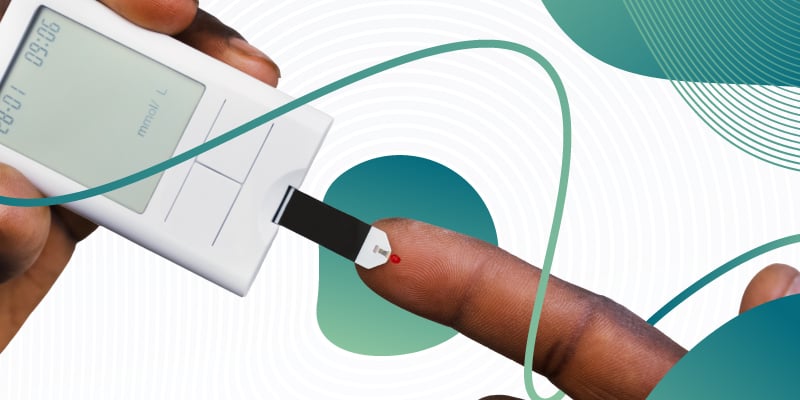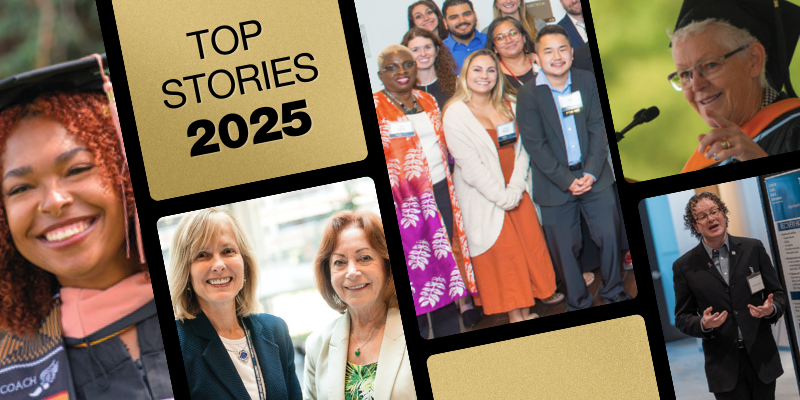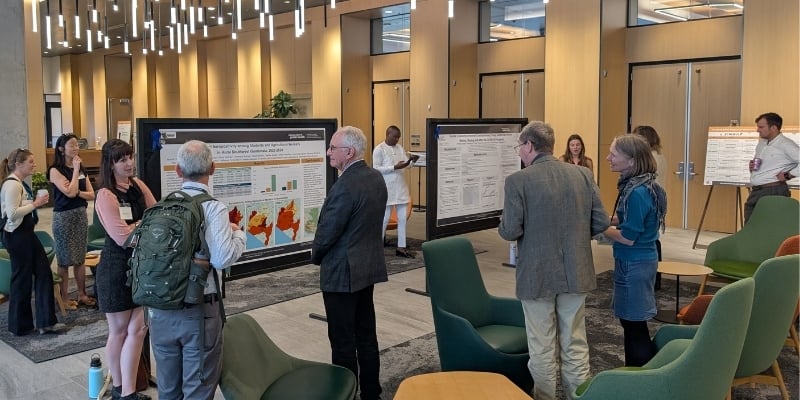The second annual Colorado School of Public Health Research Exchange began October 6 with an emphasis on numbers: dollars, percentages, poster presentation counts, and research award amounts. As the day unfolded, however, lively discussions turned to how statistics translate into the efforts of researchers to address the public health issues that define human lives.
As more than 200 attendees settled into their seats in the Anschutz Health Sciences Building, ColoradoSPH’s Dean Cathy Bradley, PhD, presented a series of impressive figures. After reflecting that ColoradoSPH is still “quite young in academic terms,” Bradley added that “our accomplishments are mature well beyond our years.” To illustrate, Bradley announced that the school garnered more than $44 million in externally funded research in 2022, placing it for the second straight year among the top 20 schools of public health in National Institutes of Health funding. The 17% funding increase over the previous year drew loud applause.
The event also featured 21 poster presentations of research by ColoradoSPH students and colleagues in areas spanning gun violence, artificial intelligence, food waste, bone health, hypertension in the Black community, and much more. The top four posters each earned a $500 prize, Bradley noted.
During breaks, the posters were available for viewing. Large crowds of attendees peppered the researchers with questions, highlighting what Bradley had in mind when she encouraged her audience to “learn about your colleagues and exchange ideas” and to “be open and curious.”
Rich research resources
Many ideas flowed after Bradley’s brief opening, starting with a keynote address by Barbara Rimer, DrPH, MPH, Alumni Distinguished Professor of Health Behavior and Dean Emerita of the University of North Carolina Gillings School of Global Public Health. Morning and afternoon panel discussions explored work by 28 researchers from ColoradoSPH and other sites on major public health issues. The topics included technology transformation in public health; teaching public health in a time of change; battling disinformation in public health; conducting participatory climate change research; improving mental health delivery to low-resource populations; and recognizing and addressing structural racism in public health research.
After lunch, plenary speakers from the Denver Museum of Nature and Science, President and CEO George Sparks and Kristen Uhlenbrock – founder and director, respectively, of the museum’s Institute for Science & Policy – engaged the audience in a freewheeling discussion centered on using “civil dialogue” to include science as an important part of policy discussions and decisions.
Learning to listen
In her wide-ranging presentation, Rimer noted the value of communicating about research and public health goals with policymakers and everyday people. She said she gained that insight from many years of research on how to encourage behaviors to decrease cancer risk and as the first woman and behavioral scientist to lead the National Cancer Institute’s National Cancer Advisory Board.
“One of the lessons I learned in working with the National Cancer Institute and talking with legislators was to think about how our work, whether it was cancer prevention or other areas of public health, makes a difference in state and local areas,” Rimer said. “When I think about schools of public health, I think about the obligation and responsibility we have to understand local conditions.” She also underscored the importance for people in public health “always to be humble and realize that we don’t always have the answers.”
Rimer went on to urge the audience to identify problems and concentrate their research on problems “that can really make a difference in people’s lives,” including climate change, diet and nutrition, social inequities, mental health, disease, and the health of underserved populations. She described ways that the Gillings School encourages innovation and entrepreneurship as paths to finding solutions for these key issues, in partnership with local communities.
Panelists tackle mental health
In two of the panel presentations, panelists also focused on the importance of building public health research around listening to and responding to community voices. For example, in her discussion of improving mental health services to underserved populations, Megan Cherewick, PhD, assistant professor of community and behavioral health and in the ColoradoSPH Center for Global Health, described working on the “global mental health crisis” among young children and adolescents in Tanzania, the Democratic Republic of the Congo, Ukraine and Darjeeling, India. Cherewick said she bases her research and work on finding and building on the strengths of those she seeks to serve.
“We always start with the community and hearing from them what they think are the highest priorities,” Cherewick said. For example, in Darjeeling, a part of her work has focused on “task-shifting” mental health interventions to community members and peers to compensate for a lack of specialists. One important area is providing training in neurodiversity – the idea that human brains have individual and expected variations – to support and strengthen young people with autism.
“It is really wonderful when you have community members who are so eager to serve the mental health needs of a really diverse population,” Cherewick said.
A dive into disinformation
In a panel discussion centered on battling disinformation in public health, Patricia Valverde, PhD, MPH, assistant professor in the Department of Community & Behavioral Health at ColoradoSPH and director of the Center for Public Health Practice’s Patient Navigation and Community Health Worker Training program, sounded a similar theme. Valverde described training community health workers and patient navigators in Spanish and English to address COVID-19 vaccination hesitancy with motivational interviewing techniques.
The idea was not to challenge or knock down myths and false beliefs that people had absorbed about the vaccine from unreliable sources, Valverde said. Rather, the workers and navigators were trained to listen, inquire, and understand skeptical questions without judgment.
“Community health workers and navigators are representatives of the communities they serve,” she said. “They are culturally and linguistically aligned, and trust has been built.” Absent that, Valverde added, health departments and clinics often struggled during the COVID-19 pandemic to overcome vaccine suspicion.
One key lesson from the training, Valverde said, is to not “overstate the science. We had to be transparent and clear about what we know and don’t know. The whole idea was to break down resistance of the community [to the vaccine] that was based on everything they had heard and instead open up lines of communication.”
Keeping it in neutral
The after-lunch session with plenary speakers, Sparks and Uhlenbrock, also cemented the theme that communicating about science and research requires listening and remaining open to disagreements. The Institute for Science & Policy at the DMNS launched in 2018 as a “non-partisan, policy-neutral” source for addressing major challenges, such as climate change, with “scientific thinking, empathy and inclusivity.” During the COVID-19 pandemic, the Institute joined with ColoradoSPH in creating a series of online seminars that featured scientific and policy experts and allowed the public to learn and ask any questions they had.
Sparks and Uhlenbrock emphasized the necessity of listening to the community about their concerns, addressing them rationally, and building lines of communication.
“Most of our work is relational,” Sparks said. “Science is a piece of the process to make more informed decisions. We are not purveyors of the answers or the solutions.”



-Dec-19-2023-10-00-38-1621-PM.jpg)


